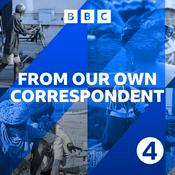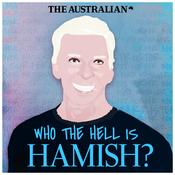6 episodes

The Book Launch
06/10/2017 | 1h 1 mins.
In this final, bonus podcast, join Helen Clark, Jim Bolger, Dame Jenny Shipley and Sir Geoffrey Palmer in conversation with Tim Watkin and Guyon Espiner, as we launch the book of the series, The 9th Floor. Four Prime Ministers on one stage. It was an historic line-up and the reason why more than 400 people crammed into the marae at Te Papa on a wild and windy night. Out of the unforgiving weather, the mood of the crowd and the Prime Ministers themselves was warm. They put aside years of rivalry to pick apart the state of New Zealand's democracy, tell war stories and discuss what they thought about opening their legacies up for close inspection.The evening, on September 8 2017, was full of humour and insight was a gathering to launch a book, published by Bridget Williams Books, which contains the transcripts of the broadcast interviews and essay by Tim Watkin and Guyon Espiner. We hope you enjoy sharing it with us.Go to this episode on rnz.co.nz for more details

The Commander - Helen Clark
04/5/2017 | 1h 5 mins.
In part five of The 9th Floor, Guyon Espiner talks to Helen Clark about her three terms in power as she sought to draw a line under Rogernomics, unleash new social reforms and rethink New Zealand's place in the world.In part five of The 9th Floor, Guyon Espiner talks to Helen Clark about her three terms in power as she sought to draw a line under Rogernomics, unleash new social reforms and rethink New Zealand's place in the world.Watch a video version of the episode hereBy Guyon EspinerWhen you think of someone who might embrace an offer of job sharing, Helen Clark doesn't immediately spring to mind.But the idea of Winston Peters sharing the Prime Ministership over a term of government was "floated" with Labour in the failed attempts at deal-making after the 1996 election, Clark says in the final episode of The 9th Floor.Clark says she can't recall who raised it, as during the coalition talks Peters often had others communicate for New Zealand First through "back routes".She says she doesn't know how serious the proposition was and ultimately it was not the stumbling block which saw Peters reject Labour and form the first MMP government with National."It might have been loosely floated but that wasn't the sticking point. I think Finance Minister was the sticking point," she says. Regardless, the idea of sharing the top job wasn't one she could entertain. "No. You can only have one Prime Minister."No one doubted who was in charge when Clark finally got the role in 1999. Once, when Deputy Prime Minister and Finance Minister Michael Cullen was asked what the government was going to do about some thorny issue, he replied: "Well, the government has gone skiing."Clark enjoyed that memory when we raised it during the day we spent with her in Auckland, as she came home from New York for a brief Christmas holiday. "That's a good line," she chuckled. But it's more than that. That story, and this interview, illustrate the degree to which the power of Prime Minister resides with the person, more so than with the office.After researching and conducting interviews with five former Prime Ministers it's a strange feeling to realise that the job doesn't exist. There is no job description. You can take a chair of the board, consensus approach and delegate power to Ministers as steward of the Cabinet or you can be master and commander…Go to this episode on rnz.co.nz for more details

The Challenger - Jenny Shipley
27/4/2017 | 59 mins.
In part four, Guyon Espiner talks to Dame Jenny Shipley about being the first woman on the 9th Floor, plus coups and coalitions, welfare reform and Winston Peters. And, above all, her commitment to change.In part four of The 9th Floor, Guyon Espiner talks to Dame Jenny Shipley about being the first woman Prime Minister, plus coups and coalitions, welfare reform and Winston Peters. And, above all, her commitment to change.Watch a video version of the episode hereBy Guyon EspinerJenny Shipley evoked strong responses from New Zealanders during her time in politics and I suspect that, with her new comments about "middle class welfare" and working with Winston Peters, she is about to do so again. But while people respond strongly to Shipley, there has been very little examination of her leadership. Researching the interview for The 9th Floor series, Tim Watkin and I found there were few books and very little academic study of this hugely influential New Zealand politician. We'll look at why that might be in a moment - but it certainly isn't because she doesn't generate debate. During the day we spent with Shipley she said New Zealand needs to take the "blowtorch" to middle class welfare, with student allowances and healthcare areas where middle and higher income earners should pay more. She finds it "morally bankrupt" that the country doesn't have an honest discussion about this and that she personally feels "sick" that on her income she can't opt out of subsidised health care. She also has some fascinating observations about working with Winston Peters, who may again be a key coalition player after the coming election. Shipley, who sacked him as Treasurer in 1998 as the first MMP government fell apart over the sale of Wellington Airport, offers bouquets and brickbats. "Winston could have been Prime Minister but for want of himself. His complexity often got ahead of his capability. Watching him on a good day he was brilliant," she says. "He was an 85 percent outstanding leader. And the 15 percent absolutely crippled him because he would get so myopically preoccupied with a diversion that it took away his capability and intent on the main goal."…Go to this episode on rnz.co.nz for more details

The Negotiator - Jim Bolger
20/4/2017 | 1h 11 mins.
In part three of The 9th Floor, Guyon Espiner talks to Jim Bolger, who steered New Zealand through a turbulent seven years that saw more economic upheaval, a resetting of race relations and the arrival of MMP.In part three of The 9th Floor, Guyon Espiner talks to Jim Bolger, who steered New Zealand through a turbulent seven years that saw more economic upheaval, a resetting of race relations and the arrival of MMP.Watch a video version of the episode hereBy Guyon EspinerI think Jim Bolger might be about to spark a debate. Two debates, actually. One on our economic settings and the other on race relations.He says neo-liberalism has failed and suggests unions should have a stronger voice. He says Treaty of Waitangi settlements may not be full and final and that Māori language tuition should be compulsory in primary schools.It was striking, sitting in Jim Bolger's Waikanae home for the third episode of The 9th Floor, just how many of the issues he grappled with in the 1990s are still alive and being debated rigorously today.Adding to that sense of history was the fact that John Key resigned while we were discussing with Bolger what it was like to be a third-term National Prime Minister. There was a little bit of personal history for me, too, and we'll come to that. But first the policy.Bolger says neo-liberal economic policies have absolutely failed. It's not uncommon to hear that now; even the IMF says so. But to hear it from a former National Prime Minister who pursued privatisation, labour market deregulation, welfare cuts and tax reductions - well, that's pretty interesting. "They have failed to produce economic growth and what growth there has been has gone to the few at the top," Bolger says, not of his own policies specifically but of neo-liberalism the world over. He laments the levels of inequality and concludes "that model needs to change." But hang on. Didn't he, along with Finance Minister Ruth Richardson, embark on that model, or at least enthusiastically pick up from where Roger Douglas and the Fourth Labour Government left off? Bolger doesn't have a problem calling those policies neo-liberal although he prefers to call them "pragmatic" decisions to respond to the circumstances. It sets us up for the ride we go on with Bolger through the 1990s, a time of radical social and economic change."They have failed to produce economic growth and what growth there has been has gone to the few at the top" - Jim Bolger…Go to this episode on rnz.co.nz for more details

The Trader - Mike Moore
12/4/2017 | 57 mins.
In part two of The 9th Floor, Guyon Espiner talks to Mike Moore about his short stint as Prime Minister in 1990, followed by his miraculous near-comeback in 1993.In part two of The 9th Floor, Guyon Espiner talks to Mike Moore about his short stint as Prime Minister in 1990, followed by his miraculous near-comeback in 1993.Watch the video version of the episode hereBy Guyon EspinerFormer Labour Prime Minister Mike Moore worries about his party. Yes his party still. Oh, there is some bitterness and bad blood for sure, but he's still a party member and desperately wants Labour to win office again. It was an emotional day with Moore. Sadness, laughter, passion, love and regret. It sat at the other end of the spectrum from our interview with Sir Geoffrey Palmer. While Palmer speaks with forensic accuracy, Moore speaks largely from the heart, leaving you with images, forcing you to 'feel' and interpret what he has said.Moore has made a remarkable recovery from a stroke in 2015, which cut short his time as ambassador in Washington DC. But things aren't easy. Sometimes the right words take a moment to come or hover just out of reach, but talking is largely fine. Walking though is hard. I feel guilty as his wife Yvonne helps him inch across the room to accommodate our photo and video requests. But he loved that day. He loved talking about what he has seen and done and is still doing. He loves his party too. Are you a proud member of Labour, I asked him as we drew to a close late in the afternoon. "Yes I'm proud of what the Labour Party has done for people. And we can do it again," he says. "I hope I live long enough to see another Labour government," he chuckles, in one of many laughs we had that day. But he has some sharp criticisms too. At one point Moore turns the questions on me, in his typically cryptic and profound way. He's started watching Country Calendar again. "How many of those people on Country Calendar do you think vote Labour now?" I choose the diplomatic route. What do you think the answer is? "None." Why? "Because we're not seen to be on the side of those who are strivers," he says. "I do think we've got trouble."What sort of trouble? "I think its basis is how you elect your leader," he says. "The caucus is our primary and sitting in that caucus you know what is going on and the idea that someone can not have the support in the caucus and the leader has to speak for that is a terrible idea." "I hope I live long enough to see another Labour government,"…Go to this episode on rnz.co.nz for more details
More News podcasts
Trending News podcasts
About The 9th Floor
Listen to The 9th Floor, Global News Podcast and many other podcasts from around the world with the radio.net app

Get the free radio.net app
- Stations and podcasts to bookmark
- Stream via Wi-Fi or Bluetooth
- Supports Carplay & Android Auto
- Many other app features
Get the free radio.net app
- Stations and podcasts to bookmark
- Stream via Wi-Fi or Bluetooth
- Supports Carplay & Android Auto
- Many other app features


The 9th Floor
download the app,
start listening.










































